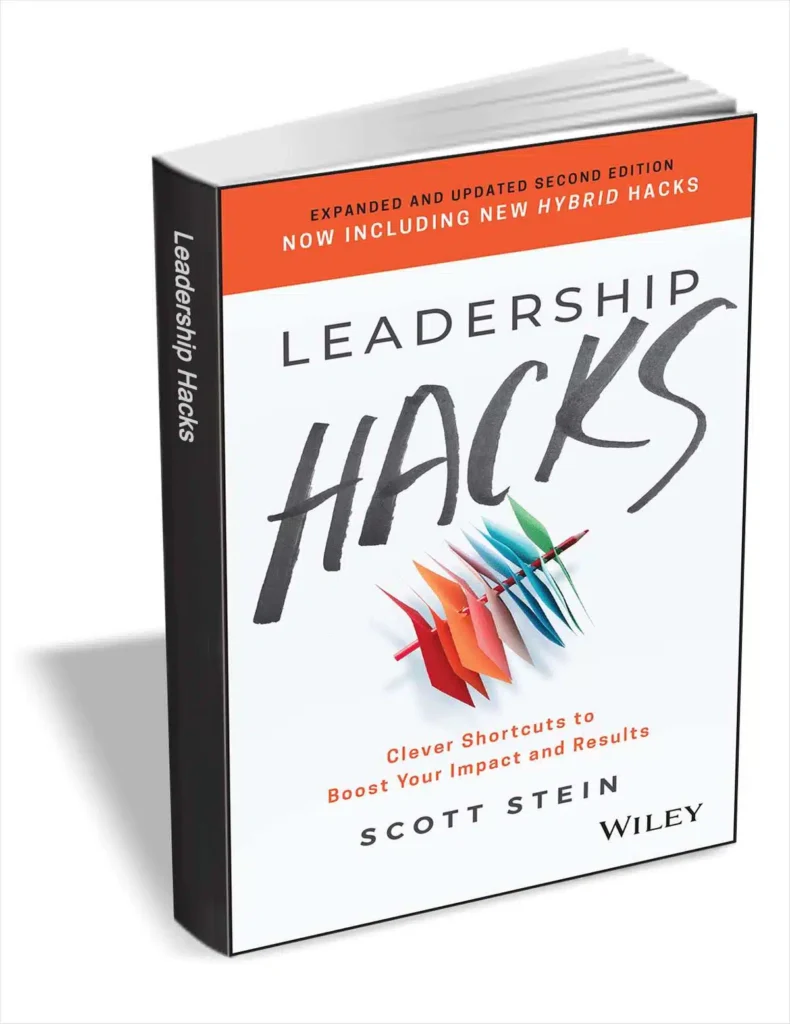
In the fast-paced world of business and management, the quest for effective leadership is an ongoing journey. Scott Stein, a prominent figure in the realm of leadership development, recently shared his “Leadership Hacks” – a collection of tips and strategies aimed at enhancing leadership skills. While his insights are undoubtedly valuable, it’s essential to examine these so-called “hacks” with a critical lens and explore their implications in the real world. Here are some of Scott Stein’s leadership hacks and my thoughts on their practicality and relevance.
- Hack #1: “Leadership is about having all the answers.”
Scott Stein suggests that great leaders are expected to have all the answers to their team’s problems. While it’s crucial for leaders to provide guidance, claiming to have all the answers can lead to hubris and may alienate team members who could otherwise contribute valuable insights. In reality, exceptional leaders embrace the power of collaboration, encouraging open communication and diverse perspectives to arrive at innovative solutions.
- Hack #2: “Focus solely on results, not the people.”
This particular hack seems quite misguided. While results are essential for any organization’s success, it’s equally vital to prioritize the well-being and development of your team members. Leaders who neglect the human aspect of their teams risk creating a toxic work environment, resulting in decreased morale and productivity. Nurturing a positive and supportive work culture allows employees to thrive and, in turn, positively impacts the organization’s overall performance.
- Hack #3: “Lead with authority, not vulnerability.”
Scott Stein advocates for leaders to project a strong and invincible facade, void of vulnerability. However, vulnerability can be a powerful tool for building trust and fostering authentic connections with team members. By sharing experiences, doubts, and setbacks, leaders can create a more empathetic environment where individuals feel comfortable taking calculated risks and embracing their own vulnerabilities.
- Hack #4: “Micromanagement ensures success.”
Micromanagement might produce short-term results, but it often hampers employee autonomy and stifles creativity. True leadership lies in delegating responsibilities effectively, providing guidance when needed, and empowering team members to make decisions and take ownership of their work. This approach not only fosters a sense of accountability but also encourages personal growth and professional development.
- Hack #5: “Lead through fear and intimidation.”
Employing fear as a motivational tool can generate compliance, but it rarely fosters genuine loyalty or passion for the organization’s mission. Effective leaders inspire their teams through positive reinforcement, recognition of achievements, and by fostering a sense of purpose and belonging. Encouraging a safe space for voicing concerns and providing constructive feedback can lead to a stronger and more cohesive team.
Take the Good, Ditch the Bad
While Scott Stein’s “Leadership Hacks” offer some valuable insights, it’s essential to approach them with a critical mindset. Effective leadership is a dynamic and multifaceted journey that goes beyond simply adopting a set of predetermined “hacks.” It requires empathy, adaptability, and a genuine commitment to the growth and well-being of the team.
Aspiring leaders should recognize the significance of collaborative problem-solving, nurturing a supportive work environment, embracing vulnerability, empowering employees, and leading with positive reinforcement. By focusing on these aspects, leaders can foster an atmosphere of trust, creativity, and innovation that ultimately drives long-term success for both the team and the organization as a whole.

